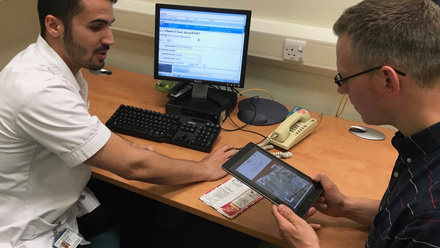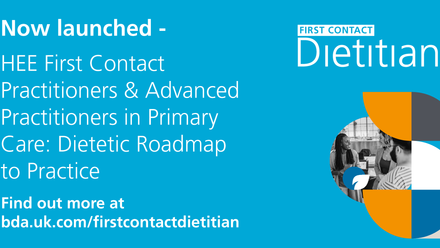Background
Additional Roles Reimbursement Scheme (ARRS) provides opportunities for AHPs to develop advanced practice roles whilst showcasing their capabilities and reducing the burden on GPs.
Birmingham has 29 Primary Care Networks (PCNs). Prior to February 2021, no PCN’s had used the ARRS to fund Dietitians. Patients experienced unnecessary delays and were unable to access care in a timely manner due to gaps in dietetic services and increased pressures on GP.
This posed two problems:
- Patients access to care was reduced due to an underdeveloped Dietetic workforce. Opportunities for growth and professional development not utilised.
- A risk of a fragmented approach to service provision. Individual PCNs risk employing their own dietitians leading to a lack of professional support for sole practitioners and the potential to disrupt existing community dietetic services.
Aims and objectives
To grow the Dietetic workforce and provide opportunities for professional development to improve patients’ access to care.
Objectives:
- Establish a new team of PCN Dietitians, hosted by the Community Trust.
- Develop new care pathways to improve access to appropriate dietetic care for patients in Primary Care.
- Demonstrate impact under the ARRS by reducing the burden on GP time, improving integration, and reducing fragmentation.
- Identify and pursue professional development opportunities for the PCN dietetic team.
Method
Links were made with several PCN Clinical Directors. Meetings and presentations were held to outline opportunities for ARRS dietitians to improve patient access to care and reduce the burden on GPs.
A funding model which would cover some of our management costs was developed.
Recruitment commenced and support was provided for the Dietitians to navigate Primary Care and its systems.
Results
- 6 PCN Dietitians recruited over 15 months.
- The team works across 9 of Birmingham’s 29 PCNs.
- Development of several pathways to improve patient access to care e.g. weight management services and respiratory services.
- Reduced inappropriate use of oral nutritional supplements and trained Primary Care and Care Home staff.
- In the first 12-15 months we have achieved:
- >600 GP appointments saved
- >£70,000 savings in inappropriate prescribing
- Reduced waiting times: most patients get access to a PCN dietitian within 1 week.
- Very positive patient feedback: e.g. “Truly made a difference to my physical health and mental wellbeing”.
- Dietitians recruited from a wide range of specialities, providing support, supervision and advice to one another in their new roles as ‘expert generalists’.
- Regular clinical supervision, benefitting the quality of patient care, and the team
- Embedded professional leadership as part of a wider dietetic service in the community Trust.
- Work is underway to identify advance practice opportunities such as First Contact Practitioner, Advanced Clinical Practitioner and Non-Medical Prescribing.
Lessons learned
- Protect a proportion of the role to focus on a clinical speciality.
- Start work on collecting clinical outcomes early.
- Get support from IT regarding systems access across Trust devices.
This model for a host Trust employing ARRS Dietitians (or other AHP staff) for Primary Care has significant potential to benefit patients, expand the profession, improve integration, and foster collaboration.
Contact:
Paul McArdle: [email protected]







